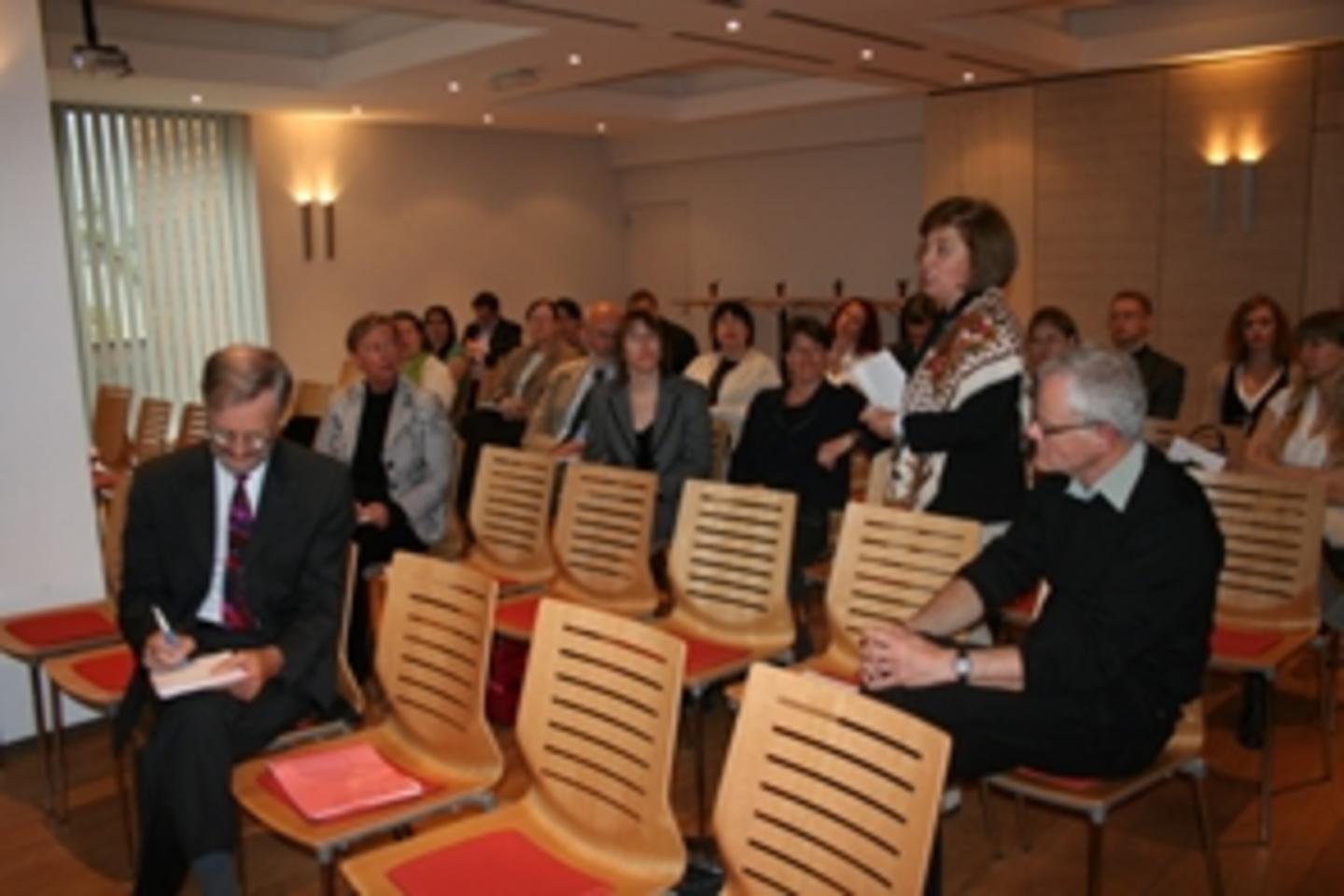Fighting climate change and ensuring a sustainable use of natural resources is an important part of the EEA and Norway Grants. One quarter of the funding for the period 2004-09 is devoted environmental projects.
Lessons learned
To share experiences and lessons learned from the 2004-09 period, and to discuss how to incorporate environmental concerns as a cross-cutting issue in the new financial contributions, close to 50 representatives from the donor and beneficiary states gathered in Brussels on 11 May 2010.
The first part of the seminar focused on lessons learned, with two recently finalised reviews on biodiversity and reductions of greenhouse gases as a starting point for discussion. In addition, an Estonian project that will reduce CO2 emissions and preserve biodiversity was highlighted.
Integrated solutions needed
The second half of the seminar was devoted to presentations and discussions on how environmental sustainability can be integrated into EEA and Norway Grants 2009-14. Senior Adviser Paul Hofseth at the Norwegian Ministry of the Environment stressed the importance of integrated solutions and urged the beneficiary states to mainstream their ambitions and priorities for the use of EEA and Norway Grants. Hofseth underlined that the EEA and Norway Grants should be seen in context to and not as a substitute for national and other funding. "You should ask yourself how to get the most environment per euro", he said.
Environmental Officer Rune Vistad of the Financial Mechanism Office (FMO) referred to the Agreed Minutes for the EEA and Norway Grants, signed on negotiator level on 18 December 2009, stating that the principle of sustainable development shall be applied in all implementing phases. "As for the previous funding period, environment is considered important as a cross-cutting issue. It is in fact even more important than before, as it is now explicitly mentioned in the protocol", Vistad said.
In his presentation on "Environmental considerations related to EU funding" Policy Analyst Mathieu Fichter at the Directorate-General for Regional Policy at the European Commission touched upon the need to build public acceptance on programmes and projects in the area of environment.
Environmental Counsellor at the Norwegian Mission to the EU, Knut Kroepelien noted that sustainability is also a key word of the EU2020 strategy, which aims to promote a more resource efficient, greener and more competitive economy.
Biofuels in Estonia
One of the projects that were highlighted during the seminar was the conversion to biofuels at a district heating plant in Lihula in Estonia. By using locally available biofuels instead of oil shale, the energy company OU Lihula Soojus will reduce CO2 emissions in Lihula municipality from 1350 tonnes to 27 tonnes annually. The biofuel used for energy production is from the wetlands in Matsalu National Park, where the meadows and flood-plain have to be mowed annually in order to preserve the natural diversity.
See all presentations from the seminar here:
• Review of EEA and Norway Grants support to biodiversity (Martin White, Consultant, PITIJA)
• Review of support to greenhouse gases reductions (Michael Kvetny, Consultant, COWI)
• Case: The reduction of greenhouse gas emissions through the adoption of renewable biofuels in the boiler house of OU Lihula Soojus, reflections on sustainability (Anu-Mai Levo, Member of the Managing Board, OU FOXIA Consultations)
• Environmental considerations related to EU funding (Policy Analyst Mathieu Fichter, Directorate-General for Regional Policy, European Commission)
• Key environmental policies and challenges (Environmental Counsellor at the Mission of Norway to the EU, Knut Kroepelien)
• Experiences related to cross-cutting issues under the EEA and Norway Grants 2004-2009 and thoughts for the future (Environmental Officer Rune Vistad, Financial Mechanism Office)
Photo: Financial Mechanism Office.
